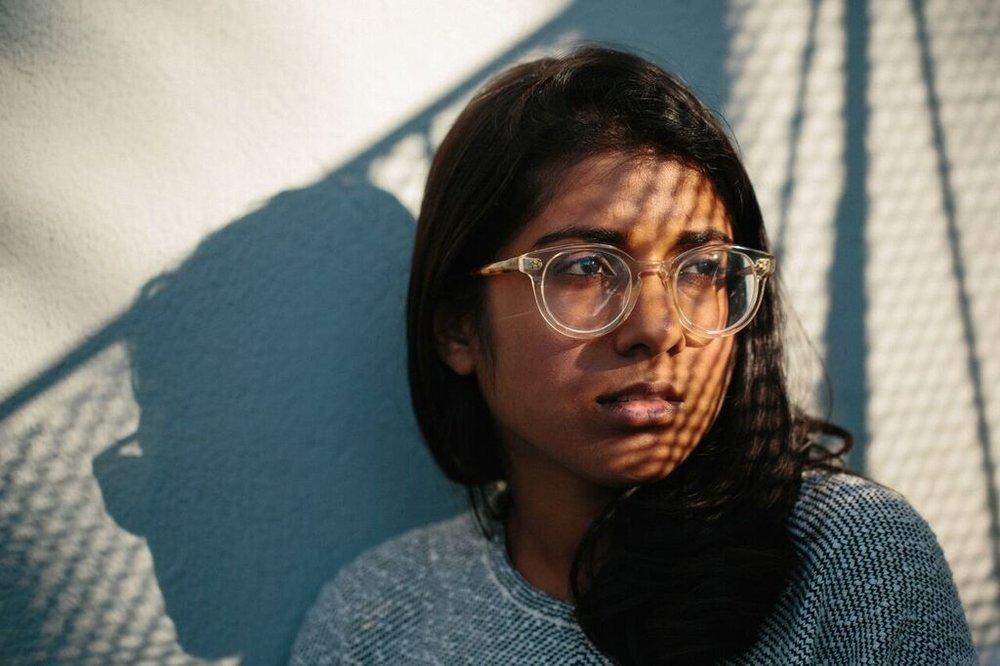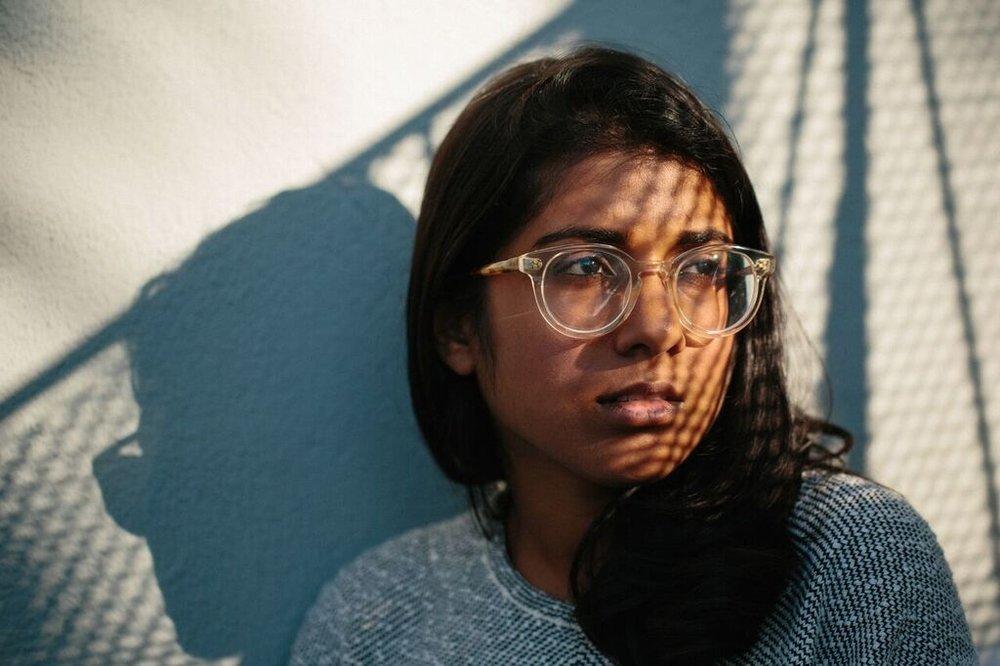In the midst of the controlled chaos of Austin Film Festival sat Minhal Baig, tucked into a quiet corner of a downtown cafe. From behind her pair of transparent frames, Baig discussed her early days in the film industry.
Story by Elise Barbin
Photo by Benji Dell
Baig worked in the mailroom at the United Talent Agency right after college, which she described as the classic start of a producing career. After working for four and a half months, she called it quits in the mailroom. “I didn’t want to work up the ladder of working in the agency for a year, spending a year in development, and then becoming a producer,” Baig says, citing a desire to do things her own way. With the premiere of her first self-written and directed feature film, she is doing just that.
During her brief 48-hour stay in Austin, Baig spoke on a filmmaking panel and presented her film, “One Night.” The film is an account of falling in and out of love for the first time as opposed to the feelings of love one experiences when married. Like most independent projects, the film had a limited budget, which Baig likened to a sandbox, wherein she had to create her own world within the parameters of the resources given to her. She accommodated for this lack of resources largely through writing a dialogue-based film, as compared to relying on cinegraphic tools. Since Austin Film Festival celebrates writers as well as filmmakers, Baig knew it was the place to debut her first feature film. “We knew we had something somewhere between drama, with moments of levity and comedy, and Austin is the right venue for it,” she says.
Since Baig studied painting at Yale University, filmmaking was not her first artistic medium. “I’ve had a predisposition for fine arts since I was a child. I was always drawing, and I was also writing stories. Those two things, for a long time, were very separate for me,” Baig says.
It was not until 2011, after interning with producer Scott Rudin, that she saw a career in film as a possibility. Now, she cites inspiration from a mixture of the ‘90s indie-filmmaking that she grew up with and more current filmmakers like Xavier Dolan, Deniz Gamze Ergüven and Sofia Coppola. Additionally, Baig mentioned French and Iranian cinema as two great influences, particularly filmmakers who incorporate the experiences of marginalized communities. Baig says that these filmmakers inspired her to include representations in her own work of people and communities that are “often relegated to the periphery of mainstream media.”
That theme of representation runs through the core of her short film “Hala”, which tells the coming-of-age story of a Muslim teenager. Although Baig does not see the film as autobiographical, it draws from her own experiences of growing up as a Pakistani-American in Chicago. “I wanted to share a part of myself that I really thought was not worthy of film. There aren’t movies out there with Muslim teenagers as the protagonist… It was about digging into my life to find the details that emotionally resonate [with the audience],” she says.
As it turns out, Baig’s efforts were not in vain. After a feature in Nylon Magazine and being chosen for Vimeo’s pick of the week, “Hala” will soon become a feature film. As if Baig is not busy enough, she will be returning to Chicago to spend time with family and begin research for her next film about residents of the Chicago public housing projects in the ‘90s.
At the end of the interview, Baig, with a gleam in her eyes, asked if she could give advice to aspiring filmmakers, “The first step in taking out the ‘aspiring’ before the ‘filmmaker’ is to just make something… the fear of making something bad, it’s very motivating. You have to just make something and make a volume of something.”












































